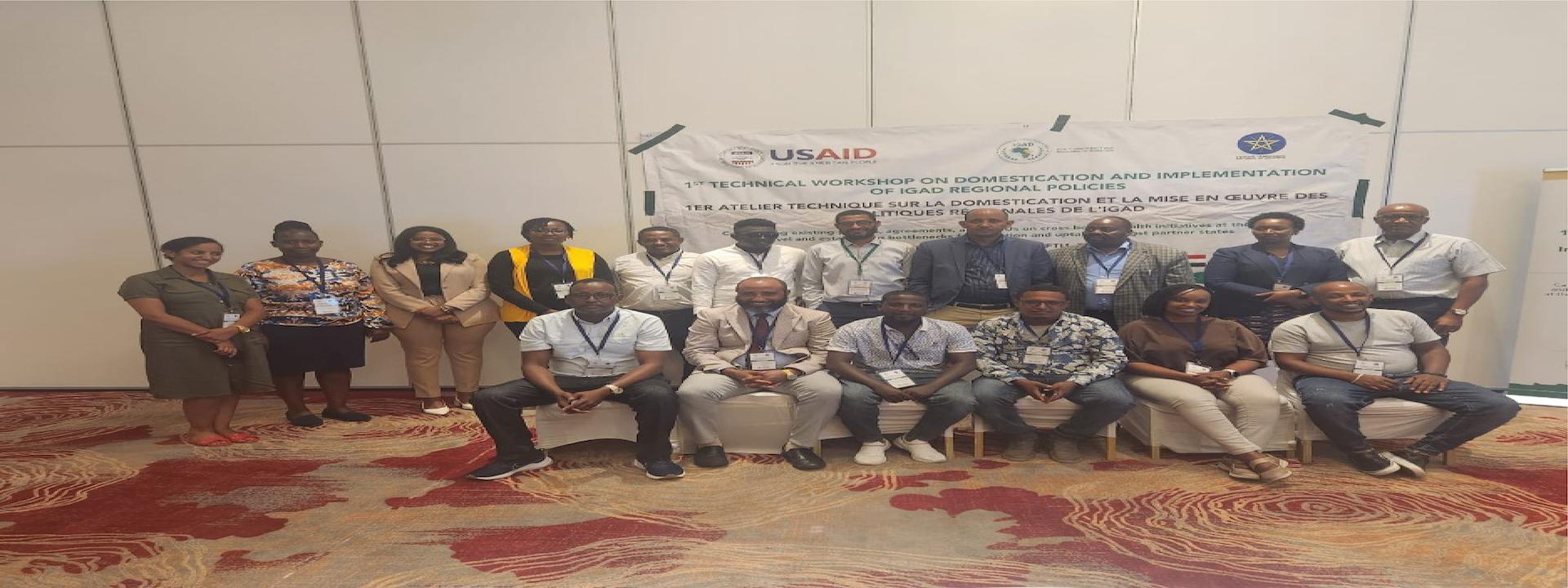October 04, 2023 (BISHOFTU, Ethiopia): The Intergovernmental Authority on Development (IGAD), with support from United States Agency for International Development (USAID), through the Local Health System Sustainability (LHSS) Project, commenced the first Technical Workshop on strengthening domestication and implementation of regional Health cross – border policies, today, in Bishoftu, Ethiopia.
The objectives of the workshop was to catalogue existing policies, agreements, and Memorandum of Understandings ( MOUs) on cross-border health initiatives at the Regional Intergovernmental Organization level and to establish bottlenecks for adoption and uptake amongst partner states.
In his opening remarks, Mr. Hassan Mohamed, the IGAD Cross – Border Health expert, representing Madam Fathia Alwan, Director, Health and Social Development Division, emphasized the need to keep track of regional policies, monitor their levels of implementation and adopt a proactive approach to ensure their domestication at the national level.
He also highlighted the need for regional policies and explained how these policies have created a harmonized approach to strengthening health systems and allowing for a seamless continuum of care for Cross Border and Mobile Populations.
In his welcoming note, Mr. Mesoud Mohammed, Statistics and Information system lead, Statistics Affairs Office, MOH, FDR of Ethiopia, on his part, stressed that the IGAD policies have been domesticated and customized to member countries’ contexts, cascaded to all levels within the countries and implemented accordingly.
“We are grateful to IGAD for organizing this event as part of ensuring that regional policies are domesticated and implemented.” He stressed.
Mr. Mesoud further stressed that the Ethiopian Health sector has benefited immensely from such support and hoped that we can partner in the areas in the future.
He also asked the IGAD team to further enhance their effort to identify and engage more relevant units and experts from the health sector and integrate the various country specific supports.
In his remarks, Mr. Francis Kangwana, Director for Monitoring, Evaluation and Learning, Local Health System Sustainability (LHSS), East Africa, described that the Project supports the East African region by building upon the achievements of the former USAID-funded Cross-Border Health Integrated Partnership Project implemented from 2014-2020, to extend high-quality integrated health services to cross-border and mobile populations in strategic border areas and waterways in East Africa.
In addition, he described that the efforts made in improving cross-border health, activity works in the regional Intergovernmental Organizations, to achieve improved and digitized cross-border health information systems and increased capacity of regional organizations to lead the development and implementation of programs, policies; as well as Strengthened regional and national financing, resource mobilization, and accountability.
“The Local Health System Sustainability in East Africa hopes that the desired outcomes are used to guide future programming.” He added.
The workshop brought together participants from MOH, EPHI and Afar Regional Health Biro of Ethiopia and IGAD Secretariat.
Finally, the first Technical Workshop on domestication and implementation of IGAD regional Health policies generated a catalogue of existing policies, agreements, and MOUs on cross-border health initiatives at the Regional Intergovernmental Organizations level, including, a review document on levels of domestication of regional policies, agreements, and establish bottlenecks for adoption and uptake, as well as, a communication and advocacy strategy for eliminating or reducing the most prevalent bottlenecks to implementing policies and initiatives amongst member states.
The IGAD Secretariat is convening a series of meetings of the key policy focal persons from IGAD member states to review progress of the decisions and directives made by the sectorial council of health and develop recommendations and a road map for fast-tracking domestication and improving meeting effectiveness and decision making.

